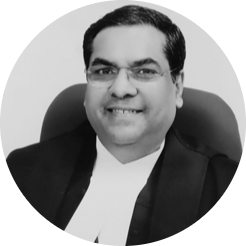Reservation in Promotion
Jarnail Singh v Lacchmi Narain Gupta
The Court looked into whether reservations for SCs and STs should extend to promotions, by assessing its 2006 Nagaraj judgment. It will now give clarifications on its 2018 judgment. The clarifications will determine how inadequate representation can be quantified through data.
Pending
Parties
Petitioner: Jarnail Singh
Lawyers: Mr. P.S. Patwalia
Respondent : Lacchmi Narain Gupta
Lawyers: Mr. Rajeev Dhavan
Case Details
Case Number: SLP (C) 30621/2011 [Diary No. 34614/2011]
Next Hearing: August 17, 2022
Last Updated: December 26, 2022
TAGS: Equality, Fundamental Rights, Reservation
Key Issues
Whether Nagaraj, which upheld reservation in promotions for SC/STs, was correctly decided?
Whether Nagaraj violates the Indra Sawhney judgement by requiring SC/STs to be proved as backward afresh in questions of reservation in promotion?
Case Description
In 2006, the Court delivered its judgment in M. Nagaraj v. Union of India. In it, the Court validated Parliament’s decision to extend reservations for SC/STs to include promotions (reservation in promotion). However, the Court also laid down conditions which made it difficult for the Central and State Governments to grant such reservations.
Specifically, the Nagaraj judgement laid down three controlling conditions that the State must meet prior to granting a SC/ST a reservation in promotion. First, the State must show the backwardness of the class. Second, it must show that the class is inadequately represented in the position/service for which reservations in promotion will be granted. Finally, it must show that the reservations are in the interest of administrative efficiency.
The Constitutional Bench in Nagaraj validated the following constitutional amendments made by Parliament:
- The Constitution (Seventy Seventh Amendment) Act, 1995 which inserted Article 16(4A);
- The Constitution (Eighty First Amendment) Act, 2000 which added Article 16(4B);
- The Constitution (Eighty Second Amendment) Act, 2000 which inserted a proviso to Article 335;
- The Constitution (Eighty Fifth Amendment) Act, 2001 which added “consequential seniority” for SC/STs under 16(4B).
Parliament made these amendments to nullify the effect of the Court’s judgement in Indra Sawhney. In Indra Sawhney, a nine-judge Bench had ruled that reservations in appointments, granted to the State by Article 16(4), do not apply to promotions.
Article 16(4A) enables the State to make any law regarding reservation in promotion for SC/STs. Article16(4B) provides that reserved promotion posts for SC/STs that remain unfilled, can be carried forward to the subsequent year. Article 16 (4B) also ensures that the ceiling on the reservation quota — capped at 50% by Indra Sawhney — for these carried forward unfilled posts does not apply to subsequent years.
Article 335 mandates that reservations have to be balanced with the ‘maintenance of efficiency’. The 2001 amendment to Article 335 clarified that the Article will not apply to the State relaxing evaluation standards ‘in matters of promotion’.
The current issue arose from an appeal by the State of Tripura against the judgment of the Tripura High Court. The Tripura High Court had struck down Section 4(2) of the Tripura Scheduled Castes and Scheduled Tribes (Reservation of Vacancies in Services and Posts) Act, 1991 as being in violation of the three controlling conditions laid down in Nagaraj.
A Division Bench of the Supreme Court, comprising of Justices Kurian Joseph and R. Banumathi, heard the appeal and decided to refer the case to a Constitution Bench on 14th November 2017. Various other matters were tagged to the appeal.
The Division Bench called on the Constitution Bench to revisit Nagaraj. It observed that the Bench in Nagaraj had failed to refer to the earlier EV Chinnaiah case. Further, the Constitution Bench was tasked with evaluating whether Nagaraj violates Indra Sawhney. The question was whether Nagaraj failed to recognize SC/STs inherent underprivilege, by requiring the State to reassess the backwardness of SC/STs, and thereby violated Indra Sawhney?
On September 26th 2018, the Court delivered its verdict. It did not call for a review of Nagaraj. Further, it struck down the demonstration of backwardness provision from Nagaraj. However, while doing so, it introduced the creamy layer exclusion principle, thus requiring that the State does not extend reservations in promotion to SC/ST individuals who belong to the creamy layer of the said SC/ST.
Since the judgment in Nagaraj, many States have found it difficult to satisfy the conditions it laid down. Various High Courts have struck down policies providing reservation in promotions. These decisions came on appeal to the Supreme Court. The Court decided to hear this application along with petitions seeking clarifications on Jarnail Singh.
In September 2021, the Court refused to reconsider Jarnail Singh. However, it agreed to hear arguments on whether any clarifications were necessary. The Bench hearing these arguments consists of Justices Nageswara Rao, B.R. Gavai and Sanjiv Khanna.
The Court will broadly address two questions. First, what does inadequate representation in a class of posts mean and how can it be proved? Second, what does maintaining efficiency in administration mean, and how can it be guaranteed?
